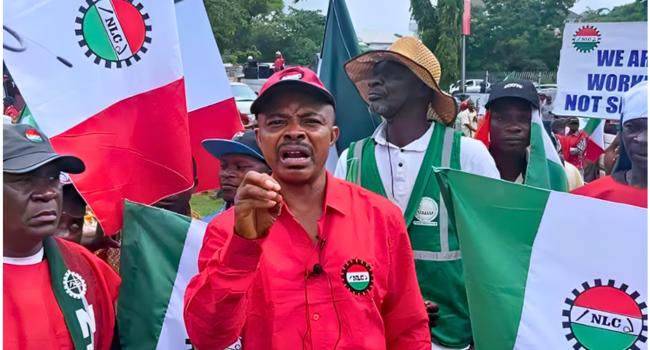The Nigeria Labour Congress (NLC) has declared its opposition to any move by the National Assembly to transfer labour issues, including the matter of the minimum wage, from the exclusive legislative list of the Federal Government to the concurrent list.
Such a change would empower individual states to set their workers’ wages.
NLC President, Joe Ajaero, issued this warning on Friday during the National Administrative Council meeting of the Central Working Committee, which took place in Abeokuta, Ogun State.
Describing the move as “an exercise in futility”, Ajaero argued that the issue of minimum wage is treated globally as a national matter in line with International Labour Organisation conventions, which regard member countries as entities, not sub-national units such as states.
He alleged that the plan by lawmakers was a calculated attempt to “bastardize” the national minimum wage structure and shift other labour-related responsibilities to the states, including the establishment of state industrial courts that would independently handle wage disputes — a move he said violates ILO principles.
“The National Assembly should not go into this exercise in futility unless members will also allow their respective states to determine their wages.
“If they attempt to smuggle labour matters into the concurrent list, we will mobilize workers to protest against it, even up to election day,” the labour leader said.
Speaking later with journalists, the NLC President reaffirmed that organized labour would firmly oppose any effort to undermine the minimum wage, calling on lawmakers to uphold justice and protect the interests of the citizens they represent.
“All over the world, there is a minimum wage for the protection of workers. In Nigeria, there is legislation for a minimum wage of N70,000. The law permits states to pay more than that, and in fact, many states currently pay above the minimum wage,” he said.
Ajaero insisted that states must not be allowed to determine minimum wages independently, warning that such a move would endanger the welfare of average workers across the federation.
He also clarified that the NLC leadership was not aware of any state that had refused to pay the newly approved minimum wage.
On the issue of delayed implementation of local government autonomy, Ajaero stressed the need to approach the Supreme Court for further interpretation of its ruling to ensure full and proper enforcement, in line with constitutional provisions.
The Punch











